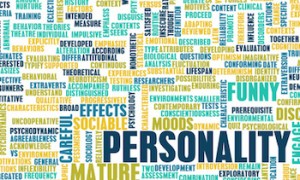
Although Autism Spectrum Disorder (ASD) is often not diagnosed before age 5 or 6, in many cases the infant or young child behaves in ways that suggest early development of this condition.
Here are characteristics that can indicate the presence of Autism Spectrum Disorder early in life.
Social Deficits
Infants and children with Autism are different from typical infants when it comes to social development. Typically, developing infants are very social. They gaze toward faces, turn toward speaking voices, grasp fingers extended towards them, and smile by the time they are 2 to 3 months old. Children who develop ASD, on the other hand, have difficulty with social interactions with other human beings.
By 8 to 10 months of age, infants who go on to develop Autism Spectrum Disorder are generally showing some signs of this condition, such as failing to respond to their names, less interest in other people, and a delay in talking. By the time they are toddlers, many of these children have difficulty playing socially with other children. They don’t imitate others and often prefer to play on their own instead of with other children. They may not seek comfort from parents or care caregivers. They often fail to respond to anger or affection in ways that are typical.
Research has shown that children with Autism Spectrum Disorder are attached to caregivers. However, the way this attachment is expressed is often unusual. Caregivers frequently interpret the child’s expressions as disconnected or motionless.
Children with Autism Spectrum Disorder also have difficulty seeing things from another person’s perspective. This may interfere with their ability to predict or understand actions as well as lead to an inability to understand why another person is feeling the way they are feeling.
It is common for these children to have difficulty regulating their emotions. They often come across as emotionally immature, they cry suddenly and for prolonged periods of time, and display emotions that are inappropriate for the situation. They may also be disruptive or physically aggressive.
Communication Difficulties
Infants and children with Autism Spectrum Disorder are different from typical children when it comes to communication. They generally experience delays in speaking and also in learning how to utilize gestures to indicate their preferences.
They may use speech in ways that are unusual, such as difficulty forming complete sentences. They may speak single words or phrases or repeat the same word or phrase over and over again. Some children have difficulty keeping a conversation going even though they’ve developed a large vocabulary. Still others carry on long monologues on favorite subjects, not allowing others to respond.
Another common communication difficulty is the inability to interpret body language and tone of voice. To use an example, sarcasm is especially difficult for those with Autism Spectrum Disorder to interpret. Most children even at an early age would understand the sarcasm in a comment such as “oh, that’s just great!” A child with Autism, on the other hand, might miss it and understand the comment as indicating that actually everything is just great.
Tone of voice may not reflect the emotion a child with Autism Spectrum Disorder is trying to convey. Some children speak in flat or robotic sounding voices. This often makes it difficult for others to understand what they need or want. This in turn can lead to frustration and inappropriate behavior on the part of the child, such as screaming or grabbing.
The main characteristic of children with Autism Spectrum Disorder is poor understanding of the give-and-take of normal social conversations.
Repetitive Behaviors and Interests
Children who develop Autism Spectrum Disorder generally engage in repetitive behaviors. They also have a tendency to engage in a range of activities that is tightly restricted.
Common repetitive behavior includes hand slapping, jumping, rocking, twirling, arranging or rearranging objects, and the repetition of sounds, words, or sentences.
Restrictive activities can be clearly seen in the ways children with Autism Spectrum Disorder play with their toys. Instead of actually playing with their toys, these children will often spend hours lining the toys up in a specific order. Repetitive behavior can take the form of usual content or knowledge.
Older children with Autism Spectrum Disorder may develop repetitive obsessive interests like memorizing car registration numbers, counting traffic lights, collecting leaves, or skipping cracks in the sidewalk.
While Autism is usually detected after the child is able to communicate through language, in some cases it can be noticed earlier. The behaviors and characteristics described above may help parents, caregivers and professionals notice the emergence of Autism Spectrum Disorder at a very early age.
